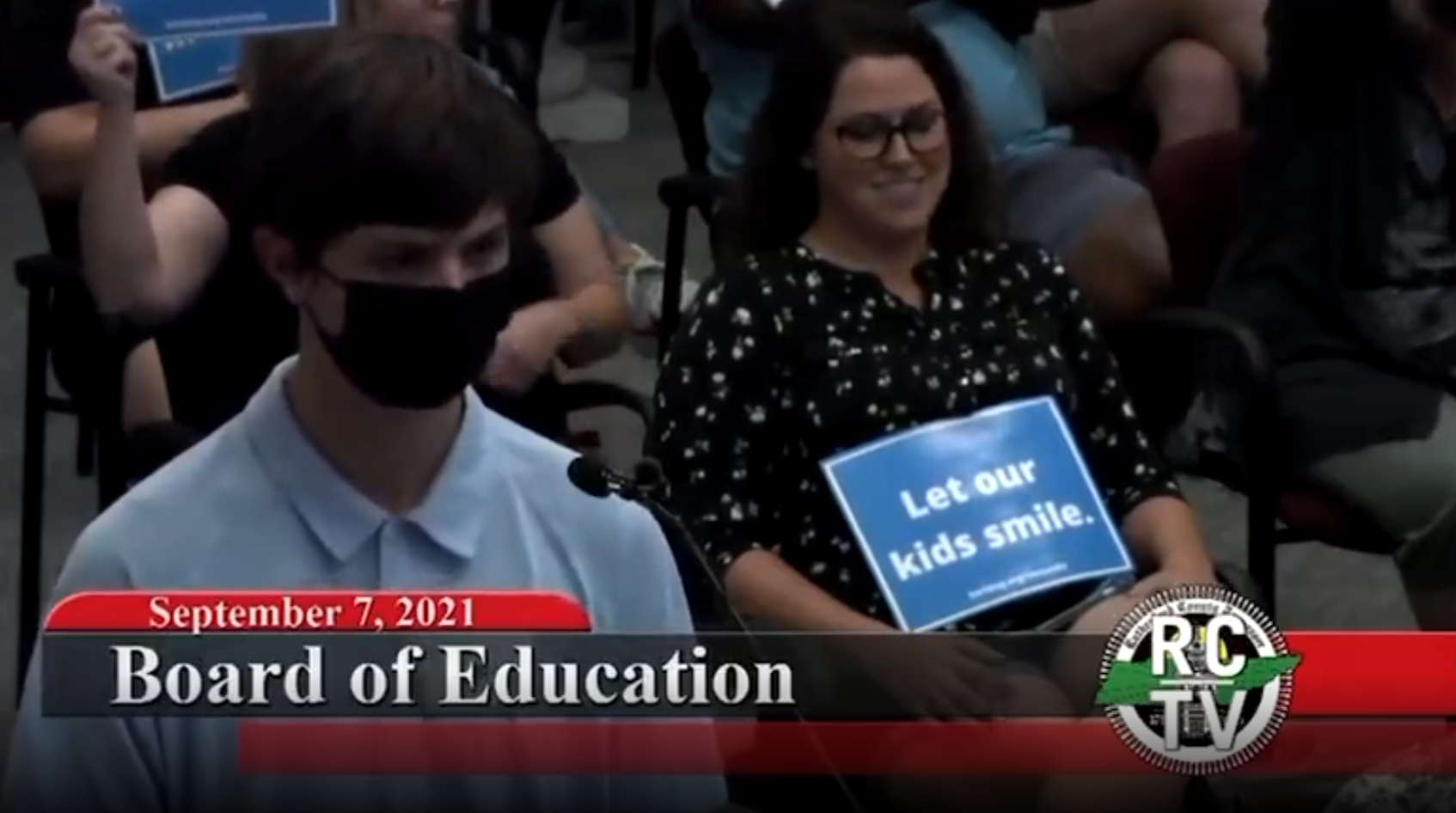The Zeitgeist
Yesterday, the 20th anniversary of 9/11, I read and heard several mainstream references to “the Widening Gyre”. It makes sense that yesterday would spur that sort of Narrative connection, as the juxtaposition of the political images and texts from then and now is breathtaking. It’s amazing (and obvious), how polarized we’ve become over the past two decades.
But at this point – where the Widening Gyre is not happening but has already occurred – I think what we’re seeing is the Widened Gyre, where everything is autotuned to the poles of the gyre, including references to the Widening Gyre itself!
Case in point, on Twitter I am now routinely criticized for “contributing” to the Widening Gyre if I don’t engage in perfunctory political whataboutism on any topic that has a political dimension … which is to say ALL topics.
What is the Widened Gyre?
Yesterday, the most recent former president of the United States gave a paid speech to Moonies and then made a paid appearance at a sham boxing match where 58-year-old Evander Holyfield was knocked out in 90 seconds.
On 9/11.
And it will change no one’s politically polarized views. Not his supporters. Not his detractors. No one.
The Widened Gyre is a VERY stable equilibrium.
— Ben Hunt | September 12, 2021|
A video made the rounds on various social media platforms last night and this morning. By now you have probably seen it. A young man presents his case for a mask policy to the school board in Rutherford County, Tennessee. He recalls the death of his grandmother by COVID and begins to express fear that this could happen to other people he cares about.
And that’s where most cuts of the video end. You see, the young man’s speech was interrupted by the shouting and snickering of adults behind him. Adults holding ‘Let our kids smile’ signs.

Elsewhere on the internet, there is a very similar – and very different – trend emerging. It is a simple Meme. You find someone who dies of COVID or asks for prayer or good thoughts after having downplayed the virus, the vaccine or masks only weeks or days before. Then you juxtapose their statements for internet points. If you’re in a particularly virulent version of this community, maybe you even post something vile on their family’s announcement of the person’s passing on Facebook. This is NOT cherry-picking. There are entire social media sub-communities and hashtags devoted to these memes.

We have written several times about the imagery of Ionesco’s landmark play Rhinoceros. I’m abridging rather thoroughly here, but the main conceit of the play is that the humans gradually change into rhinoceroses. But the shock of the story isn’t the devastation the beasts cause, rampaging about town. The shock is that, at some point, we are no longer shocked. We see the family, friend, neighbor or colleague we once knew and and say simply, “Oh, a rhinoceros.”
Many of us today will shrug and say, “Oh, a rhinocerous” to adults laughing and jeering at a child discussing his grandmother’s death. The Real Issue, you see, is that the child made a statement about the role of masks with inadequate information to justify his claim, and that might unduly influence local policy.
Many of us today will shrug and say, “Oh, a rhinoceros” to those who barge in on a family grieving the loss of someone they shared their entire lives and dreams with. The Real Issue, you see, is the good we can do by making an example of how wrong they were about COVID.
Maybe it’s time to remind ourselves that it isn’t normal for humans to transform into rhinoceroses.
Maybe it’s time to wrap up a little bit less of our individual and collective identity in Being Right About COVID.
For news junkies and the Very Online, one of the most well-traveled news stories over the past couple days has been the story of the “American students who are stranded in Afghanistan.”
The first version I read of the story came from this piece published by The Hill, although it borrows heavily from a piece published in the LA Times and San Diego Union-Tribune the same day.
Dozens of California students, parents stranded in Afghanistan after summer trip abroad [The Hill]
The key excerpt if you don’t feel like clicking over is here:
Dozens of California students and parents are stranded in Afghanistan after taking a summer trip to the country.
More than 20 students and 16 parents from the Cajon Valley Union School District in El Cajon, Calif., visited Afghanistan on summer vacation. Now they are among thousands of people who are waiting to leave the country amid the chaotic U.S. withdrawal that has caused political unrest across the nation, according to the Los Angeles Times.
Cajon Valley Superintendent David Miyashiro alerted school board members on Tuesday that he would be meeting with Rep. Darrell Issa (R-Calif.) to discuss the situation, the Times noted.
Source: The Hill
However much of the headline or article you read, you will still arrive at the same two questions that roughly half of America has since yesterday: (1) What the devil were a group of students doing taking a summer trip abroad in Afghanistan, and (2) Why is one of the students’ parents talking about worries that they are missing class?
It’s the funny thing about news. We more or less define it based on the assumption that it tells the truth, and this article does. These students from California absolutely went to Afghanistan over the summer. They are absolutely stranded there. These are facts.
But at some point here, you have to feel like a writer without an axe to grind might have felt inclined to mention that the California students are LITERALLY REFUGEES FROM AFGHANISTAN WHO WENT TO THEIR OLD HOME TO VISIT FRIENDS AND FAMILY. And look, that doesn’t change that they are people just as deserving of our efforts to extract safely as anyone else. It just takes away the single reason the article went viral, that is, that a bunch of kids going to Afghanistan for summer vacation seemed pretty wacky.
The ability to influence our behaviors as information consumers isn’t confined to whether we are explicitly being told how to think about something. Narrative is just as easily communicated through the selective absence of information, through its placement on a page, and through editorial decisions regarding the volume and emphasis of its coverage.
So which explanation for this preposterous framing do you think is true? And remember, you can always pick more than one:
- Never attribute to malice that which is adequately explained by stupidity. They just didn’t think about the very obvious omission, or they didn’t do the basic research to inform it.
- They were terrified of getting canceled for maybe implying that refugee status was a relevant detail to the story.
- Clickbait. C’mon.
Join us in the forum which you think it is – or offer another explanation!
— Rusty Guinn | August 26, 2021|
An Australian Pack member living abroad published what I think is an outstanding review of the depths to which Australia’s Covid-zero policy has descended. Here’s the skinny:
We are a country that pulls things out of the ground, sells coffee to each other, and invests every dollar we don’t have in residential property. And that’s been fine until this point. Australia, more than any other country, has ridden a wave of prosperity over the last 30 years that resulted in a quality of life almost unsurpassed anywhere in the world. But it has bred complacency, and the country’s response to COVID has revealed this complacency and its worrying lack of urgency. We’ve convinced ourselves that we generated long-term prosperity because there’s something special about us; but a lot of it’s been due to luck.
Taking a step back, Australia’s approach to COVID implicitly includes the following: a comfort with severely curtailing its citizens’ liberties; the capacity to absorb and pay for economic calamities; a belief that its brand is strong enough to recover from the damage inflicted and to once again attract talent and capital; zero tolerance for risk or its citizens ability to manage it; and conviction that trust in authority will remain despite all the failures, hostility and dishonesty.
Daniel Bookman
— Ben Hunt | August 25, 2021|
If Barbara Tuchman were alive she would be adding another chapter to her classic The March of Folly.
I am fascinated to see what narratives spring forth from this sad and tragic failure to accomplish anything other than leave behind a string of broken promises.
Z.
‘‘Experience keeps a dear school, but fools will learn in no other, and scarce in that; for it is true that we may give advice, but we cannot give conduct.” said another Ben
T.C.
— Ben Hunt | August 18, 2021|
With the jobs report today showing 4% year-over-year wage inflation and 0.4% month-over-month wage inflation, it seems like a good day to repost this note. Personally, I’m delighted that wages continue to rise at a rapid clip. But if you think that any of this happens in a vacuum, if you think that employers aren’t preserving their margins by raising prices more than they’re raising wages … you’re living in a fantasy world.
This is what a wage/price inflation spiral looks like.
— Ben Hunt | August 6, 2021|
So that’s where we are in our local real estate market – low demand, low supply, high price expectations – and my sense is that this is where we are in lots of markets … not just CT residential real estate. Maybe it’s just the summer doldrums, I dunno. Maybe I’m just taking my local experience as more meaningful than it is. I’d be really interested to hear if anyone is seeing or experiencing the same, either in RE or anywhere else.
Because this is how stagflation happens.
Seasonality is so tough to parse, especially against pandemic-affected seasonality, but it sure seems like inventory got legitimately bought down in Q4/Q1, after which brokers sold that experience and y-o-y % changes to drive a corresponding increase in supply.

Also no idea wtf is going on in multi-family / condo land around here, but definitely seems distinct from the single-family experience.

— Ben Hunt | July 28, 2021|
Epsilon Theory may have gotten its formal start in 2013, but the soft launch took place in 1991. That’s when my partner Ben finished his doctoral work at <lifts nose slightly> a school up in Cambridge. His work there (and his 1997 book, Getting to War) focused on how news could be used to predict the likelihood of war. It also analyzed how news was used by institutions and individuals to foment an appetite for and belief in the necessity of war, which is related to but not the same as the ability to use that news for predictions.
So yes, we were interested to read about Project Cassandra, a collaboration between German academics and military leaders to quantify the risk of conflicts using…literature. The Guardian covers it here in what I think is a very worthwhile read.

The project is really interesting. It confirms, or at least shares, many of the core principles of our Narrative Machine project. Not least among them is the recognition that oft-mined sentiment possesses a fraction of the influence of memes with subjective power that can only be identified objectively through words and phrases of meaning. Or the observation of identifiable, recurring story archetypes.
Leaving aside that we focus on different universes of creative output, our projects DO differ in one respect. The Cassandra Project appears to place great emphasis on the ability to quantify the popular and critical acclaim of a fictional literary work. For example, more popular, more viral, more well-regarded work would have different influence, which is a perfectly sensible hypothesis.
Because we focus on a larger and more frequent dataset of news, blogs, press releases and transcripts, we get to do two different things: first, instead of estimating how much of an audience has heard an idea and how much that idea has changed their minds, we can more easily observe how much a specific memetic idea has reproduced within the dataset over time.
Second, because our dataset includes items which are nominally news / non-fiction content, we can observe the extent to which explicit and implicit opinion language is being deployed, which also provides a window into the narrative-shaping efforts of Common Knowledge missionaries.
Two different approaches to a similar problem. I prefer ours, because I feel more confident saying that an idea has reproductive legs by observing how it changes the language other people use to discuss it, and because knowing some of the intentions of powerful institutions and influential individuals is an indispensable part of any effort to quantify the potential effects of narrative.
But there are absolutely features of the zeitgeist which will only manifest in the arts, in literature, and in the groanings and yearnings of those who make the songs. For that reason alone, we think the Germans have the right of it here in the way that the Scots did before. It’s a very cool project.
Let me make the songs of a nation, and I care not who makes its laws.
Andrew Fletcher, Commissioner of the Old Parliament of Scotland (1703)
— Rusty Guinn | July 8, 2021 | 12:32 pm
The politicization of inflation into a partisan “There Is No Inflation!” TM Narrative by the nudgers and mandarins on the left is really depressing.

The politicization of inflation into a partisan “Biden Inflation!” TM narrative by the clowns and raccoons on the right is really depressing.

It’s really depressing because it makes it impossible for me to say anything on inflation without getting lumped into an insane partisan box. It’s an entirely constructed and false framing of the issue, and I’m just so freakin’ weary of it.
We call this political auto-tuning. We call this a political shock collar.
It’s the go-to move of incumbents in a two-party system with high-peaked bimodal electorate preferences. THIS is why there are no successful centrist politicians. THIS is why there are no stable centrist policies. THIS is why we can’t have nice things.
THIS is why I believe that top-down societal change is impossible, but instead must emerge from the bottom-up through an authentic social movement of Make/Protect/Teach.
Watch from a distance if you like, but when you’re ready … join us.
— Ben Hunt | July 2, 2021 | 11:09 am
We make it no secret that our research program here is all about using natural language processing to identify and measure narratives in the world. But is Narrative truly only shaped by verbal and written communication? Do Missionary statements have to be made with the mouth?
Of course not.
Here’s narrative missionary Max Scherzer, pitcher for the Washington Nationals, providing an exaggerated form of protest against the revised MLB enforcement policy regarding the use of foreign substances. The umps have generally been inspecting hats gloves and belts for these substances. Max decided to give them a little, shall we say, extra on the belt removal.

Here’s Oakland Athletics pitcher Sergio Romo, picking up every nuance of Scherzer’s crystal clear communication to the commissioner’s office.

Scherzer and Sergio’s sticky substance strip show is memetic perfection in the form of malicious compliance. There is no press conference speech either pitcher – or the others who will no doubt mimic their displays in the coming days – could have made that would have more clearly shifted Common Knowledge to the belief that the foreign substances rule was being applied, interpreted and policed in an absurd, preposterous way.
Bold prediction: this narrative doesn’t peak until Joe West enrages Zach Greinke into an NC-17 display on national television.
— Rusty Guinn | June 23, 2021 | 9:21 pm